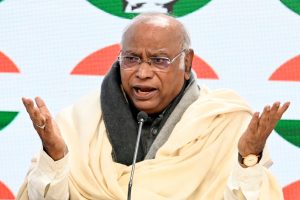Canada’s Prime Minister, Justin Trudeau, seems all set to win a third term in the snap election, but the ruling Liberal Party will fall short of regaining the parliamentary majority that he was seeking, arguably pointing to an erosion in its support base.
The Prime Minister will, therefore, be helming a minority government. The projected result will enable Trudeau to pursue the most left-leaning agenda the country has seen in at least a generation. Even with a minority, the results suggest the Liberals will boast a stable government, which will allow Trudeau to continue with a major spending agenda, one that is largely backed by his government’s most likely partner, the left-leaning New Democratic Party. Both have campaigned on higher taxes for business enterprises and stricter emission rules for the oil and gas sector. Trudeau’s Liberal Party was elected or leading in 155 of the 338 seats in the House of Commons, compared with 123 seats for the Conservatives under Erin O’Toole.
A party needs 170 seats to form a majority in the House of Commons. The Bloc Quebecois, a party that runs candidates only in the French-speaking province of Quebec, was elected or leading in several constituencies and the NDP was ahead in 29. The Liberal victory is a historic milestone for Trudeau, marking only the eighth time a Canadian leader has won three successive elections. Trudeau’s father, Pierre, had also achieved the same distinction. The outcome represents a comeback of sorts for Trudeau, whose party was trailing in the polls midway through the five-week campaign. For all that, the failure to secure a majority is a disappointing result for the Liberals. This is the second time that voters have denied the incumbent Prime Minister full control of the legislature, limiting his freedom to take big risks or govern unilaterally.
Canada is no stranger to minority governments. The previous seven elections have yielded no fewer than five minority governments, lasting on an average about two years. They have, however, proved to be popular not the least because they require the participation of several parties to make laws. At another remove, minority parliaments keep parties on a constant campaign footing and are given less scope to consider long-term issues. Politicians are thus wary of tackling major problems like Canada’s sagging competitiveness or slow transition towards a low-carbon economy.
There is also a tendency to spend more, even accommodate the priorities of other parties. In the two years since Trudeau lost his majority in 2019, the Canadian currency has been the second-worst performer among G-10 currencies against the US dollar. All three opposition parties had at one point backed Trudeau’s emergency borrowing to pay for the Covid-19 response. The convergence on policy that lawmakers displayed in the last Parliament had influenced the campaign, with all parties promising more social spending and continued deficits to help the recovery.










